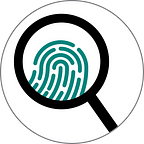On October 22, 2020, the hashtag #SARSMustRise trended on South African Twitter, in reference to the Nigerian Special Anti-Robbery Squad (SARS) that was at the center of violent protests wracking the West African country. The #SARSMustRise hashtag was primarily promoted by a number of Afrophobic Twitter accounts united under the nationalistic #PutSouthAfricansFirst hashtag. This community of Twitter users use patriotic nationalism to hide deeply Afrophobic sentiments targeting foreign nationals in South Africa.
The ringleader of the #PutSouthAfricansFirst community was originally an account using the handle @uLerato_Pillay. The account was deactivated after a DFRLab investigation identified the individual behind the @uLerato_pillay account as a former member of the South African National Defense Force. The account has since been replaced by another account under the handle @Lerato_pillay.
The network of xenophobic accounts amplifying the #PutSouthAfricansFirst movement remains active. This small group of approximately 50 accounts pin incidents of crime, a lack of service delivery and allegations of human trafficking solely on Nigerian nationals living in the country. These accounts have, since at least early March 2020, promoted hashtags such as #NigeriansMustFall, #ForeignersMustGo and #ZimbabweansMustGo.
On September 23, several organizations under the #PutSouthAfricansFirst banner marched to the Nigerian embassy in Pretoria. The small group of approximately 50 people pinned the drug trade and human trafficking in South Africa solely on Nigerian nationals living in the country, while #NigeriansMustFall trended alongside #23SeptemberCleanUpSA on Twitter. The xenophobic hashtag was amplified by @Lerato_Pillay and other members of the #PutSouthAfricansFirst movement, who claim they want to “clean up” and “reclaim” parts of the country from Nigerians. A similar hashtag, #16OctoberCleanSA, was also amplified by the same group of accounts.
Background
The #SARSMustRise hashtag first appeared on Twitter on October 11, 2020, when it gained significant traction among mainly South African Twitter users. This coincided with the increased visibility and awareness around the global #EndSARS protests and the massive social media campaign running in parallel to protests on the ground.
The initial online conversations from October 10 and 11 were in reaction to South African celebrities tweeting #EndSARS in solidarity with the Nigerian protests. Despite supporters of the #PutSouthAfricansFirst movement taking exception to being called xenophobic, the #SARSMustRise hashtag was used to express glee at the situation unfolding in Nigeria.
The hashtag saw a resurgence after reports that the Nigerian military had opened fire against peaceful protesters near the Lekki Toll Gate, in the south of Lagos. The same cluster of accounts, nestled within the #PutSouthAfricansFirst community, began using #SARSMustRise on Wednesday morning, after news of the toll gate shooting filtered through to South African social media.
Analysis
The DFRLab used the Twitter API to obtain tweets using the #SARSMustRise hashtag from October 19, 2020 through October 26, 2020. This provided a dataset of 14,812 tweets published by 3,953 accounts.
The most prolific Tweeters were accounts that are involved with the #PutSouthAfricansFirst movement. The top 10 accounts using the hashtag tweeted it 485 times, comprising about 3.27% of the total #SARSMustRise tweets. While not as disproportionate as some other campaigns by these accounts, this is still a disproportionately vocal community for its size.
A social network analysis showed that the main driver of the conversation around #SARSMustRise was none other than the @Lerato_pillay account. Although @Lerato_pillay was not responsible for producing the largest number of tweets containing the hashtag #SARSMustRise, each of its tweets relating to the topic were retweeted quite substantially, primarily by members of the #PutSouthAfricansFirst movement. Another account, @Thabelo_PSAF, first seen during the October 10–11 usage of the hashtag, was also quite prominent in the October 20 network. Although the account itself has a relatively small following — less than 3,000 at time of investigation — @Thabelo_PSAF is regularly retweeted by @Lerato_pillay and is a prominent member within the #PutSouthAfricansFirst community.
The network of tweets containing the #SARSMustRise hashtag primarily consisted of retweets; of the 14,812 tweets in the dataset, 8,694 (58,7%) were retweets. It was also clear that only a small number of the accounts were responsible for amplifying the hashtag, with 2,066 (24%) of these retweets coming from just the top 20 accounts.
Some of the users who identified with the #PutSouthAfricansFirst movement, including @Lerato_Pillay, incorporated a narrative about human trafficking in their posts by including #EndHumanTraffickingInSA or #StopHumanTrafficking in tweets praising SARS. In September tweets from South Africa about human trafficking or missing persons were heavily retweeted, although, only three percent of these posts were original, according to the Centre for Analytics and Behavioural Change. The organization found that several missing person posts were authored by accounts that actively promoted the #PutSouthAfricansFirst movement. The South African Police Service later warned the public to stop sharing false information about human trafficking, missing persons and kidnapping.
A word cloud of tweets containing the #SARSMustRise hashtag showed the most common phrase included in the tweets was “human traffickers.”
Other accounts made reference to prostitution and abductions rather than human trafficking. However, all the accounts blamed Nigerians living in South Africa for these criminal issues, and extolled the violent nature of SARS.
Some of the tweets with significant engagement appeared to be condemning the hashtag. However, in doing so, these tweets also inadvertently amplified it.
Despite these instances, the primary amplification of the hashtag was driven by the #PutSouthAfricansFirst movement and the relatively small group of hyper-active accounts within the network, rather than a larger network of South Africans in support of the Special Anti-Robbery Squad.
Tessa Knight is a Research Assistant, Southern Africa, with the Digital Forensic Research Lab (@DFRLab).
Jean Le Roux is a Research Associate, Southern Africa, with the DFRLab.
The DFRLab team in Cape Town works in partnership with Code for Africa.
